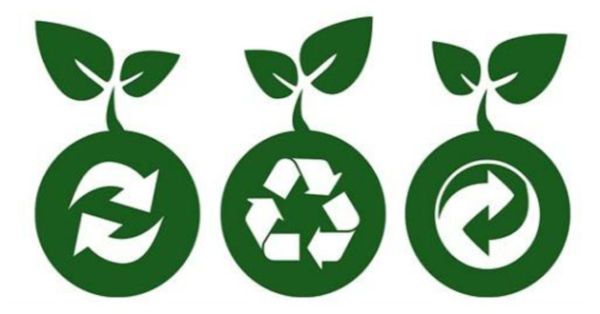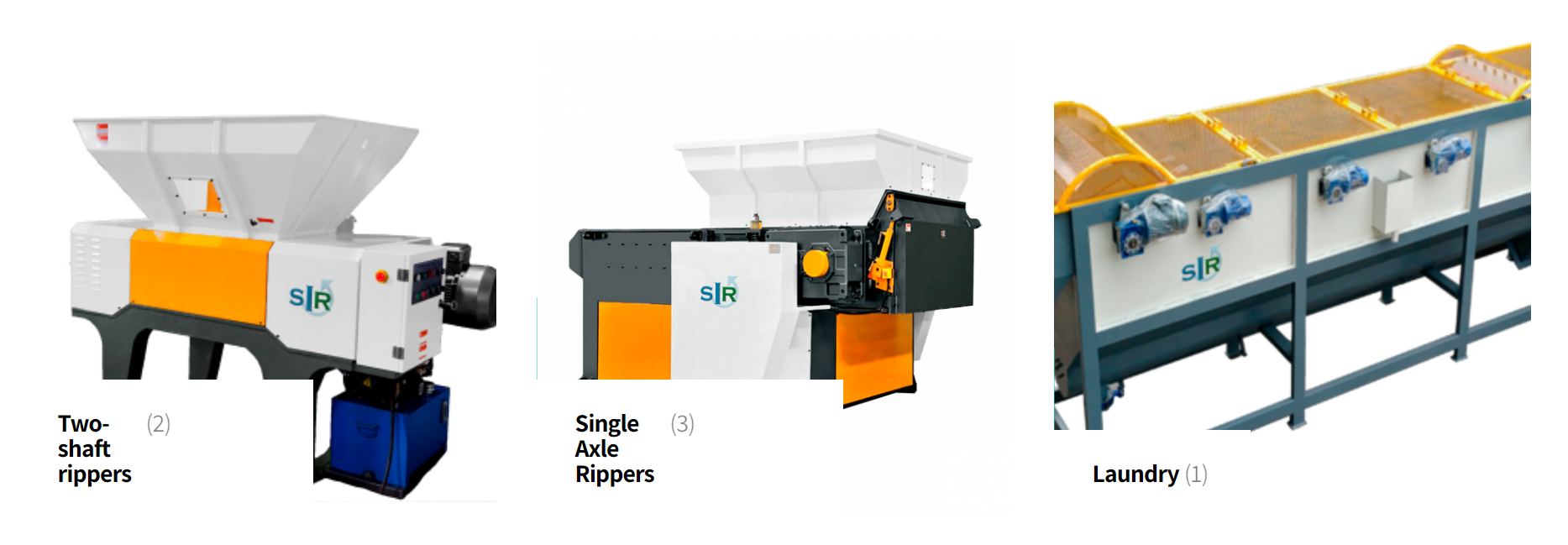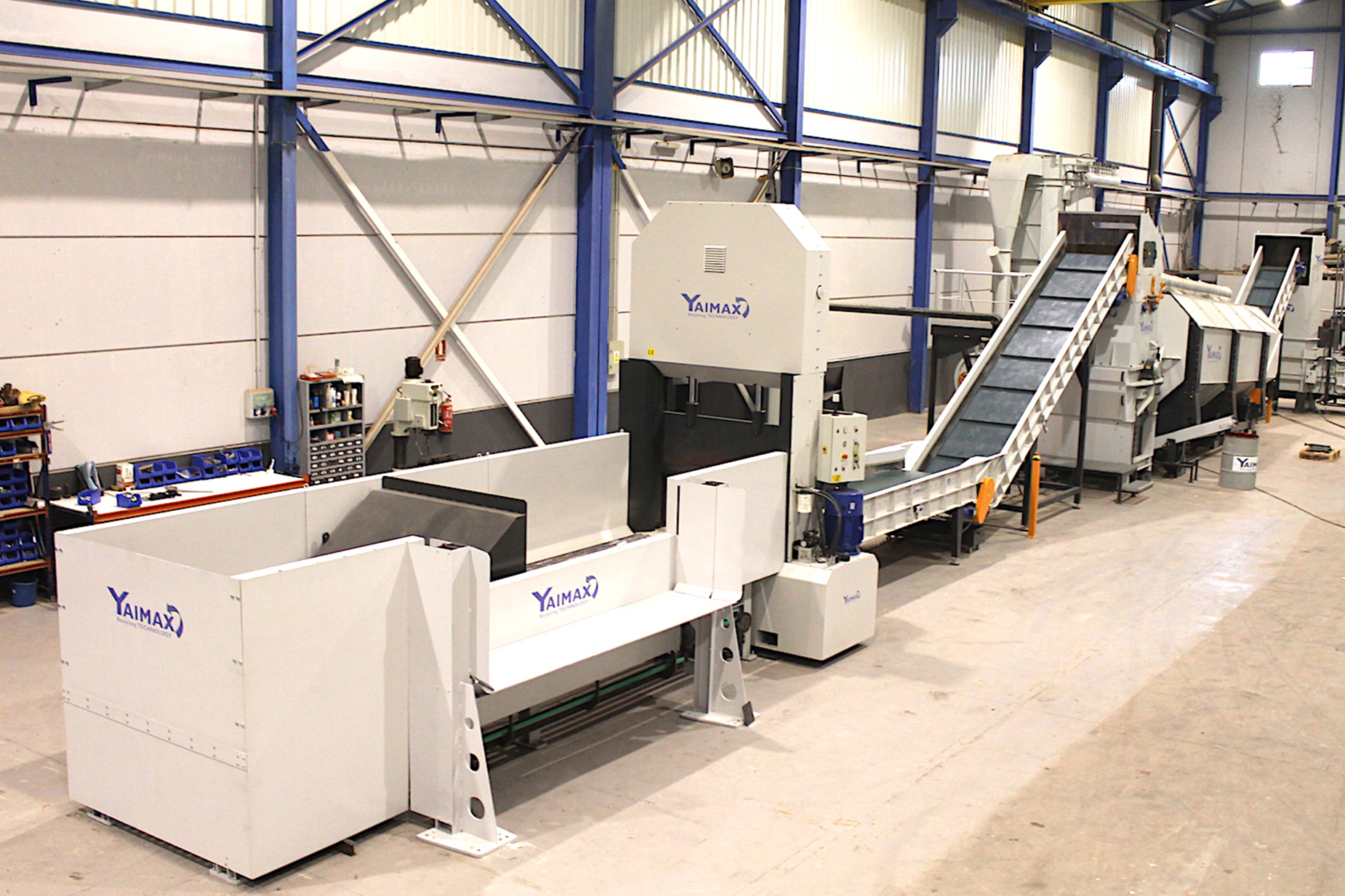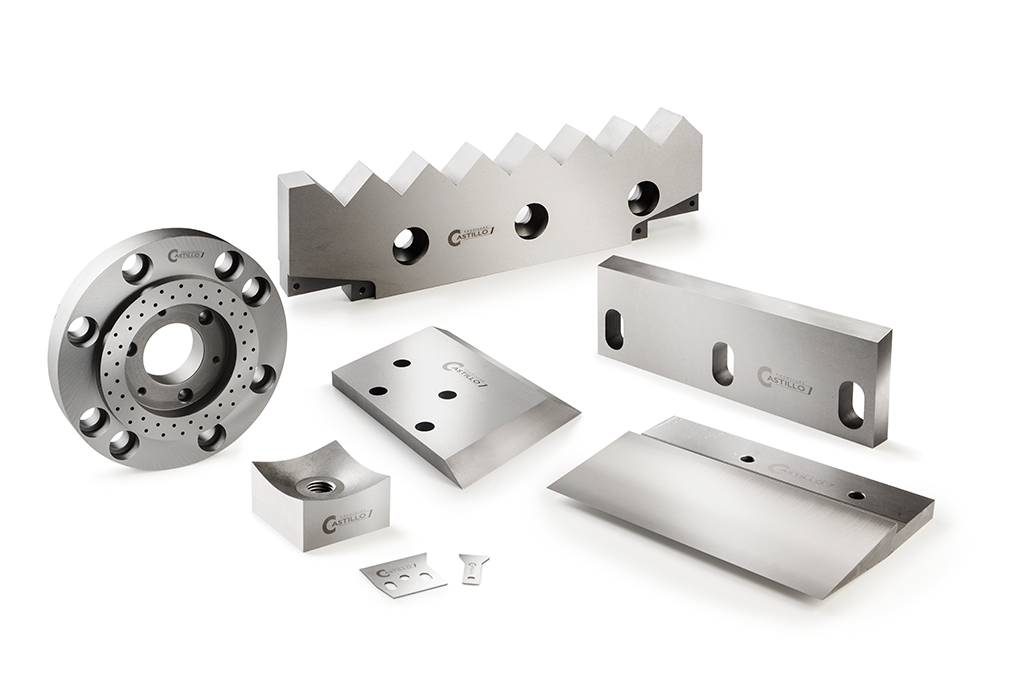In recent decades, the use of plastics in agriculture has grown exponentially, reaching approximately 12.5 million tons annually worldwide. These plastics, which include everything from mulch films to irrigation systems and bale wrappings, have proven valuable in improving crop yields, conserving resources, and reducing pesticide use. However, the environmental cost has been significant. The accumulation of macro, micro, and nanoplastics in agricultural soils poses a growing threat to soil health and the natural environment, requiring an urgent reassessment of how these materials are managed.
In response to this, international initiatives like the UNEA-5.2 Plastic Treaty aim to end plastic pollution. But the key to a sustainable use of agricultural plastics lies in the implementation of the “3Rs”: Reduce, Reuse, and Recycle. In this article, we will explore how these strategies can be effectively applied through recycling technology, with an emphasis on the role of specific machinery, such as single-shaft shredders, and the fundamental role played by industrial blades in this process.

The Impact of Plastics in Modern Agriculture
The use of plastics in agriculture has revolutionized how food is grown. From mulch films, which cover soils to control weeds and regulate temperature, to high-efficiency irrigation systems, plastics have proven to be an indispensable tool in increasing yields and optimizing resources. In countries like China, plastic mulch films have enabled more efficient production, reducing the need for up to 3.9 million additional hectares of farmland to achieve the same production levels.
However, this intensive use has an environmental cost. Plastics, as they break down into microplastics and nanoplastics, accumulate in agricultural soils, affecting their fertility and essential biological functions. Recent studies highlight that the persistence of conventional plastics in the environment can alter water infiltration, reduce moisture retention capacity, and negatively affect microbial communities in the soil. This underscores the urgent need to implement more sustainable approaches based on the principles of reduce, reuse, and recycle to minimize these adverse impacts.
Recycling Agricultural Plastics: The Role of Specialized Machinery
The key to addressing the massive use of plastics in agriculture lies in their recycling. Currently, recycling rates for agricultural plastics are very low, leading to significant accumulation in soils and ecosystems. To achieve true sustainability, it is essential to increase the rates of reuse and recycling through the implementation of advanced technologies and the adoption of efficient practices in managing plastic waste.
A crucial part of this process is the use of specialized machinery. Recycling agricultural plastics requires a comprehensive approach that takes advantage of the most advanced technologies. Among the key solutions for this process are specialized machines that optimize the transformation of discarded plastics into reusable materials. A wide range of equipment is designed to handle this type of waste efficiently, with several machines playing a crucial role in recycling:
- Double-shaft shredders: Ideal for the initial reduction of large volumes of plastic waste, these shredders are capable of shredding robust materials into smaller fragments, facilitating the next step in the recycling process.
- Single-shaft shredders: More precise equipment that allows for additional control in plastic reduction. They are essential when more controlled shredding is needed for specific applications.
- Granulators: These machines allow plastic waste to be converted into uniform granules, ready to be reused in the manufacturing of new products. Their compact design and high processing capacity make them an indispensable tool for maximizing recycling.
- Extruders: Used to transform recycled plastics into reusable products, extruders are key to giving a second life to agricultural plastic waste. Through this process, plastics are melted and converted into new raw materials.
- Rotary shears: Equipped with high-performance blades, these machines offer efficient solutions for cutting plastics into smaller pieces, facilitating their further processing in recycling plants.
- Washers: This machine allows the cleaning of agricultural plastics, removing soil residues, chemicals, and other contaminants. It is essential to ensure that plastics can be recycled effectively and safely.
- Crusher mills: With finer reduction capabilities, crusher mills allow plastic waste to be transformed into small particles that can then be reused or reprocessed. They are crucial in the material preparation phase for recycling.
- Dry-cleaning plants for agricultural plastic: This specialized system cleans plastics without the need for water, representing a more sustainable solution. The plant allows the plastics to be prepared for recycling efficiently, with a lower environmental impact.
Each of these pieces of equipment plays a fundamental role in the recycling cycle, allowing agricultural plastics to be treated more sustainably and aligning with the concept of the “3Rs”: reduce, reuse, and recycle.
 Advanced machinery for recycling from SIR Valencia.
Advanced machinery for recycling from SIR Valencia.
 Yaimax Integral Plant for dry pre-washing of agricultural plastic.
Yaimax Integral Plant for dry pre-washing of agricultural plastic.
Industrial Blades: The Engine of the Recycling Process
Industrial blades are key components in the agricultural plastic recycling process. These blades, integrated into shredders, mills, and crushers, enable the precise and efficient reduction of large volumes of plastic into more manageable particles for further processing. The durability and sharpness of the blades are key factors in ensuring that the recycling process remains efficient and profitable.
In double-shaft shredders, the blades allow for simultaneous cutting and tearing of thicker, more resistant plastics, facilitating their preparation for later stages. In single-shaft shredders, more precise blades are required to provide additional control over the size of the processed material, which is essential for ensuring uniformity in the recycled plastics.
Crusher mills also rely on sharp, high-resistance blades that need to be maintained to achieve the fine reduction of plastics into particles that can then be reprocessed into new products. Regular sharpening and proper maintenance of the blades not only maximize productivity but also extend the machinery’s lifespan and minimize downtime.
By integrating quality blades into the various recycling stages, processing plants achieve greater efficiency and contribute to more sustainable and economical recycling of agricultural plastics.

Thanks to the collaboration within the Grupo Castillo, we offer comprehensive and efficient solutions for agricultural plastic recycling. Our high-quality machinery and industrial blades ensure that each stage of the recycling process is optimized, from the initial reduction to the final conversion. This synergy guarantees not only greater productivity but also a tangible contribution to sustainability in agriculture.
If you would like to learn how our solutions can improve your plastic recycling process, we invite you to contact us and consult with our experts.

